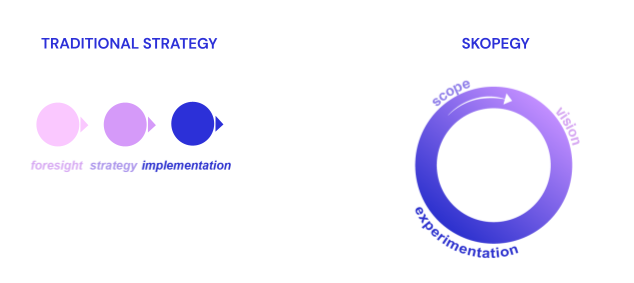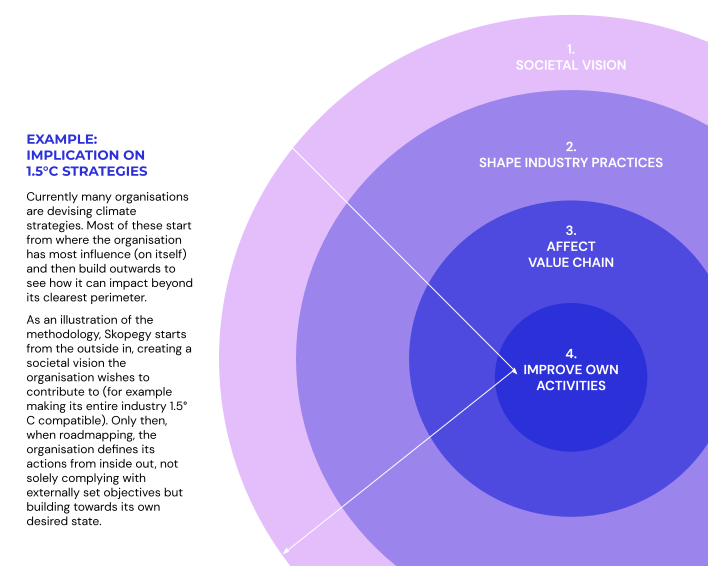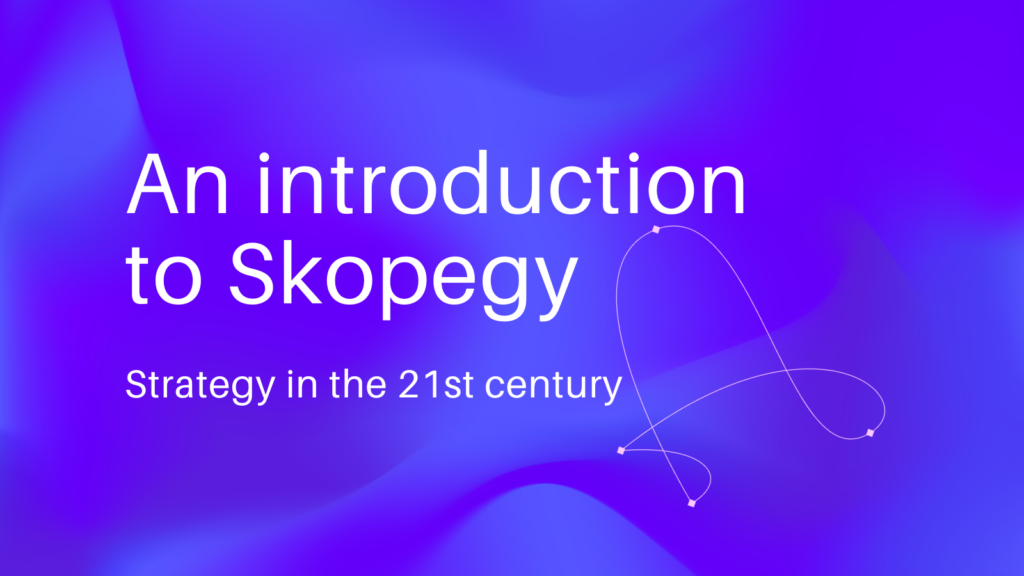Our collective future depends on the ability of all organisations to not only react to changes in the world but recognise and embrace the agency they hold to intentionally build better future societies. The approach presented in this white paper is Demos Helsinki's attempt to provide one concrete way out of the methodological dead end stifling the private sector's capability for meaningful and ambitious transformation.
Our collective future depends on the ability of all organisations to not only react to changes in the world but recognise and embrace the agency they hold to intentionally build better future societies. The approach presented in An introduction to Skopegy: Strategy in the 21st century is Demos Helsinki’s attempt to provide one concrete way out of the methodological dead end stifling the private sector’s capability for meaningful and ambitious transformation.
In its 17 years of practice, Demos Helsinki has collected, crafted and applied a unique set of tools that enable organisations to create and implement long-term actionable and societal visions with clear short-term milestones and successes. We have used the method described in this publication with:
- large multinationals in automotive and transport, network infrastructure, logistics, retail, healthcare, and more,
- global NGOs, like the International Federation of the Red Cross, and
- government administrations on 4 continents.
Why shift from traditional strategy?
Strategy is broken. First, it’s based on projecting trends into the future, a practice that offers limited insights due to the increasing complexity and unpredictability of the world. Second, by focusing solely on external trends and current assets, it pushes the organisation to change only under external constraints and places too much emphasis on its current structure.
Because of these characteristics, strategy is not built to handle the complex, societal and long-term issues facing decision-makers (and society) today. There are currently no available mature markets for fighting climate change, rethinking work, multi-decade infrastructure choices, the civilisational implications of A.I., the role of the for-profit corporations in society at large, and so many more. In this context, companies are called to transform their activities and purpose and explicitly build a better society. In traditional strategy, the further the time horizon, the less predictable or reliable plans will be.

Why Skopegy?
We share Skopegy as an approach, process, and toolkit that creates new paths to organisational viability while optimising for societal purpose. Skopegy fosters purpose-driven, long-term societal thinking while maintaining practical steering of financially viable operations through increasingly unpredictable times and beyond.
Skopegy bridges the gap between societal and financial value creation by giving the agency and means to organisations to do both simultaneously. For example, it arms organisations with enough agency to pursue societally desirable markets while exiting lucrative but detrimental ones.
In this publication, oriented towards practitioners, executives and anyone interested in organisational strategy, you will find:
- The limitations of the current strategy toolbox
- Description of the standard Skopegy process, along with valuable tools
- Organisational implications of Skopegy

Read the full publication here.
If this sounds like something you’d like to explore to build your own business’ viability in the face or our new planetary context, connect with us:
Vincent Lassalle, Team Lead, Expanding Agency
Otso Sillanaukee, Expert, Sustainability & Circular Economy


What is the role of business when the rest of the world is changing?
Post
November 14, 2022
Towards systemic innovation: how foresight can help organizations transform
Post
September 16, 2021
Webinar: Emerging Changes in the Post-Pandemic World
Post
April 14, 2020
Foresight enables to prepare for crises but also look beyond them
Post
April 2, 2020
What do we talk about when we talk about strategic foresight
Post
August 29, 2018
Seven reasons why your company should do scenarios as part of strategic foresight
Post
August 29, 2018
Why your company needs strategic foresight and what will result out of it
Post
August 29, 2018
How Nokia backcasted its way out of a dead end – and why your company should do the same
Post
February 12, 2016
Embedding a long-term view
Theme
December 3, 2024
Towards long-term governance – From future awareness to action
Publication
January 21, 2025